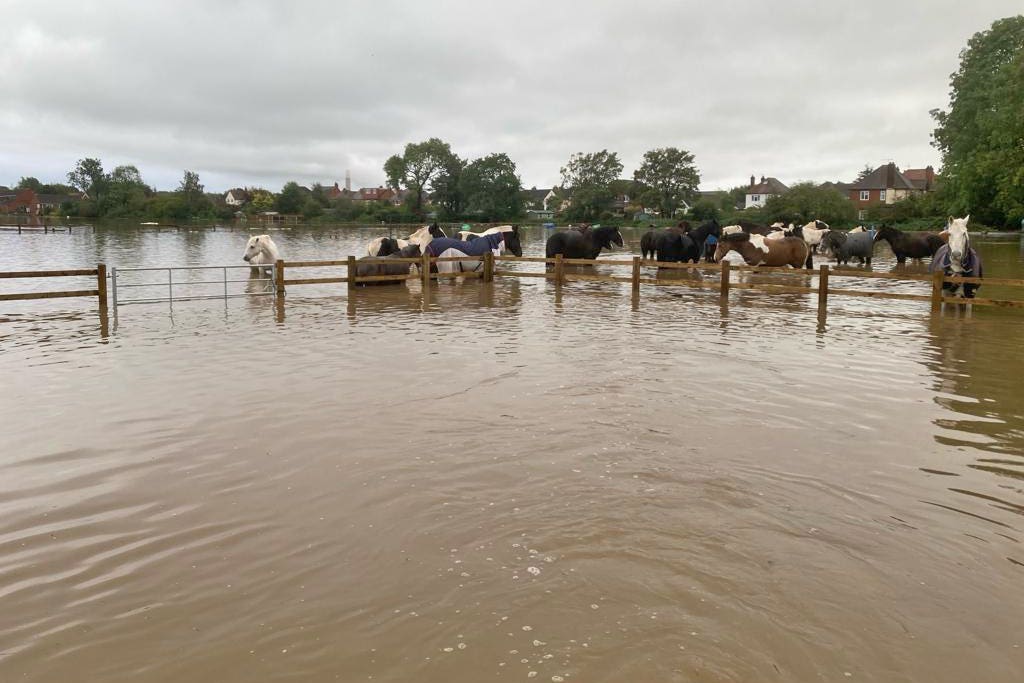Environment secretary Therese Coffey blames wrong kind of rain for Storm Babet floods
She told MPs ‘this was rain coming from the other way and we don’t have quite as much experience on that’
Your support helps us to tell the story
From reproductive rights to climate change to Big Tech, The Independent is on the ground when the story is developing. Whether it's investigating the financials of Elon Musk's pro-Trump PAC or producing our latest documentary, 'The A Word', which shines a light on the American women fighting for reproductive rights, we know how important it is to parse out the facts from the messaging.
At such a critical moment in US history, we need reporters on the ground. Your donation allows us to keep sending journalists to speak to both sides of the story.
The Independent is trusted by Americans across the entire political spectrum. And unlike many other quality news outlets, we choose not to lock Americans out of our reporting and analysis with paywalls. We believe quality journalism should be available to everyone, paid for by those who can afford it.
Your support makes all the difference.The environment secretary has suggested the damage done by Storm Babet was harder to predict because rain came in from the east.
Therese Coffey told MPs a “rapid review” would be conducted after highlighting that some flood-hit communities felt they could have been given more pumps to stop them from becoming submerged.
At least seven people are thought to have died in the “unprecedented” weather event, while hundreds were forced to flee their homes in Scotland and northeast England. The storm brought a rare red weather warning to the North with torrential downpours battering the country for days.
Giving evidence to the Commons environment, food and rural affairs committee, the environment secretary told MPs: “One of the things that happened particularly with Storm Babet is that we are very good, with the Met Office and the Environment Agency’s flood forecasting [centre], at predicting weather normally because most of our rain tends to come in from the west.
“We’ve got that pretty much down to a fine art. This was rain coming from the other way and we don’t have quite as much experience on that, therefore our accuracy of predicting where such heavy rain would fall was not to the same degree as if it had been.
“So the Environment Agency had moved assets from parts of the country more towards Yorkshire and the North East and that way.
“But I’m conscious that there were still some places that felt they could have done with some more pumps.”

Ms Coffey promised to conduct a “rapid review” alongside the Environment Agency to understand “what could have been done better”.
“Clearly for people whose homes were flooded this weekend, I fully recognise it is a very distressing time for them,” Ms Coffey told the committee.
“Quite a lot of them will have to move out of their homes for some considerable time.”
Hundreds of people have been left homeless in the wake of Storm Babet, with about 1,250 properties in England flooded, according to the Environment Agency.
The environment secretary, who visited affected residents in Retford, Nottinghamshire, on Monday, said that £5.2bn has been allocated to protect homes and businesses from flooding between 2021-27.
But she admitted it looked as if her department “may not be hitting” its target of protecting 336,000 properties by 2027.
Downing Street said each type of weather brought with it “different challenges” as it defended the government’s efforts during the storm.
Asked if Rishi Sunak was concerned that the UK is not as good at dealing with rain from the east, the prime minister’s official spokesperson said: “I’m not sure I would agree with that – different weather events present different challenges.
“But I think when nearly 50,000 homes have been prevented from flooding that would demonstrate we are prepared for flooding.”
